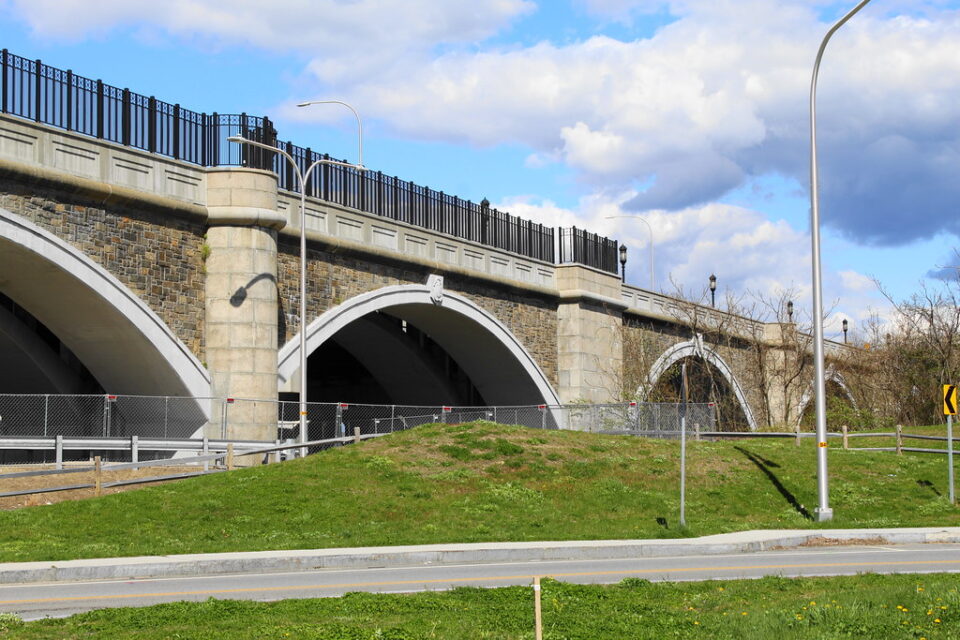Washington Bridge closure cost state hospitality sector $114M, Salve Regina study finds

A comprehensive economic impact study conducted by students in the course Community Based Economic Impact, taught by Sam Sacco, senior lecturer in the Department of Business and Economics, and in partnership with the Rhode Island Hospitality Association (RIHA), revealed significant economic consequences to Rhode Island’s hospitality sector following the December 2023 closure of the Washington Bridge in Providence. The report highlights a projected $114 million loss in statewide hospitality-related revenue during the first 12 months following the shutdown, creating a substantial strain on local businesses and employment.
The Washington Bridge, a critical artery for east-west travel, was closed on Dec. 11, 2023, due to structural failures. The findings show that Providence County has borne the brunt of the impact, accounting for $56.7 million of the total hospitality revenue loss. Other counties, including Kent and Newport, also experienced notable declines, with economic losses reaching $29.8 million and $16.5 million, respectively. Washington County reported a $17.6 million loss, highlighting the widespread effect of the bridge closure on regions dependent on hospitality-driven revenue.
The report also estimates a statewide job loss of 1,342 positions within the hospitality sector during the first 12 months of closure. The greatest employment losses occurred in Providence County, where 668 hospitality-related jobs were eliminated, while Kent and Washington counties also experienced significant declines. However, the study revealed a contrasting trend in Bristol County, which saw a 2.3% increase in hospitality revenue, equating to a $6.6 million gain. This uptick suggests a shift in consumer travel patterns, with some economic activity being redistributed to areas less affected by the bridge closure.
Looking beyond the first year, the study projects the total economic impact on Rhode Island’s hospitality industry to reach $748 million by 2029, further emphasizing the long-term implications of the Washington Bridge’s closure. Key municipalities, including Providence, Warwick and South Kingstown, were identified as among the hardest hit, reflecting the critical role the bridge plays in supporting businesses and transportation connectivity.
“This study provides critical insight into the economic toll of the Washington Bridge closure on our industry, but also highlights opportunities for recovery,” said Farouk Rajab, president and CEO of RIHA. “The data underscores the urgency of continued legislative support to mitigate long-term challenges. Restaurants, hotels and other small businesses are the backbone of Rhode Island’s economy, and we need collaborative efforts with state lawmakers, as well as the community’s help to sustain them.”
Conducted by Salve Regina’s economics students and faculty, the study utilized the Regional Input-Output Modeling System (RIMS II) developed by the U.S. Bureau of Economic Analysis. This economic framework analyzed direct, indirect and induced monetary impacts of the closure, specifically focusing on hospitality industries defined by North American Industry Classification System codes such as full-service restaurants, hotels, entertainment venues, breweries and food service providers.
The study drew on revenue data provided by the Rhode Island Department of Revenue’s Office of Revenue Analysis and applied conservative inflation projections to model economic activity under closure and non-closure scenarios. RIMS II multipliers were used to assess not only direct impacts, such as lost sales and jobs, but also the ripple effect on local suppliers, employees and vendors.
“This study provides valuable data points that help the state better understand the effect of the Washington Bridge closure,” Sacco said. “This kind of impactful contribution is an example of Salve students putting our mission in motion; rigorous academics applied to serving the community.”
The Washington Bridge study is the third commissioned for Salve Regina by RIHA, following a 2021 study of the cost of the COVID-19 pandemic to the state’s hospitality and tourism industries and an analysis of the percentage of post-pandemic economic recovery. In previous years, Salve Regina has also been commissioned to conduct economic impact studies for Newport’s Cliff Walk, Newport Hospital, Newport Contemporary Ballet, the Vietnam Veterans Memorial Wall in Fall River, the Naval Undersea Warfare Center in Newport and the Naval Sea Command in Washington, D.C.

